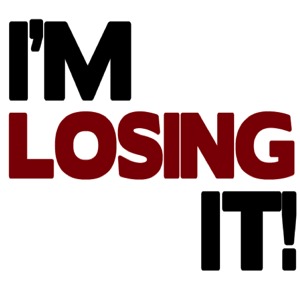Jeff Altman, The Big Game Hunter offers more phone interview tips for job hunters.
[spp-transcript]
Although I have done videos about, about phone interviewing I want to cover a couple of additional points.
I’ll simply say that you already know that you need to be in a quiet place for the conversation. But there are some fun things that you can do that will help you really excel in a phone interview.
When the interviewer calls, you thank them for making the call, and they say, “I’ve looked at the job description, but can get an idea of what it is that you’re looking for from me? This way, you make sure you’re on the same page as the interviewer.
Often, from the time that the position description has been created until the time that you actually interview, the job has evolved a bit, although the job may read one way on paper, in actuality, the screening for something a little bit different. So always take the time to explain what it is that they are is the looking.
Another subtlety is, ask them, “How long do you expdo you expect we will be speaking?” You can simply say that I just want to make sure that I have that amount of time in my schedule. When they are scheduling the interview and ask, “Can we speak at 1 o’clock?”
“Terrific! Ihow much time should I set aside my calendar?” Just get an idea of the amount of time that you will be talking to them.
Listen to the question. I can’t tell you the number of times where people start to get off on these long tirades and I hav call them a tirade because, after a while, I have no idea what they’re talking no recollection of the question. I have gone so far as to ask them, “Do you remember my original question?”
So try to to stay on point by answering the question in 45 seconds or less. If you have to go to a minute, so be it. But try to keep your answers to about 45 seconds in length and listen to what they’re asking you.
Along the way, you may want to sound like you are thinking about your answer and being all reflective. It is acting that you are doing. They can’t see that you have notes out in front of you and that you’re jotting down some things. Another thing I’ll mentioned to you is try using headphones. If you have access to headphones, use them. I find that being hands-free when I do my radio show and when I do my calls all day long is extremely helpful. It just allows me to use my hands, I’m not going to develop a crick in my neck that’s going to wind up hurting during the course of my conversations. Use headphones if you can.
Finally, at the end of this, you might ask them, ” so what’s going to happen next? When do you expect I would hear back about next steps in the process?”
That gives you a sense of timeline. Again, nothing I’m talking about is to be done in a way with it sounds like you’re anxious or nervous. Everything is, again, about the acting of the part. So you might just simply say, “Thanks for calling. When do you think I might be hearing back about next steps in the process?
“Well, I have a number of people to speak with.”
Oc ourse, you have a number of people to speak with! I am just trying to get a feel for the timeline that you folks have.”
“I expect to get back to you in a week to 10 days,” or “I expect I’ll call you tomorrow about scheduling an in-person interview,” or whatever it is, just get a sense of timeline. Then, concluded by saying,”I’m andI just want you to know how interestws I am in this role. I do look forward to hearing from you about next steps of you. I would love to continue further.
Firms find it much more appealing when they are being pursued. One of the things that hiring managers, in particular, hate is when they have to extend an offer that is going to get turned down. So, you want to express interest because, often, frequently, it’s a differentiator when hiring managers are deciding which person to make the offer to.
They have two individuals; they like them a lot; they both quite capable. The thing that puts it over the edge for you can be very simple –they think you are interested.
[/spp-transcript]
Do you think employers are trying to help you? You already know you can’t trust recruiters—they tell as they think you need to know to take the job they after representing so they collect their payday.
The skills needed to find a job are different yet complement the skills needed to do a job.
Jeff Altman, The Big Game Hunter has been a career coach and recruiter for what seems like one hundred years.
JobSearchCoachingHQ.com is there to change that with great advice for job hunters—videos, my books and guides to job hunting, podcasts, articles, PLUS a community for you to ask questions of PLUS the ability to ask me questions where I function as your ally with no conflict of interest answering your questions.
Connect with me on LinkedIn








